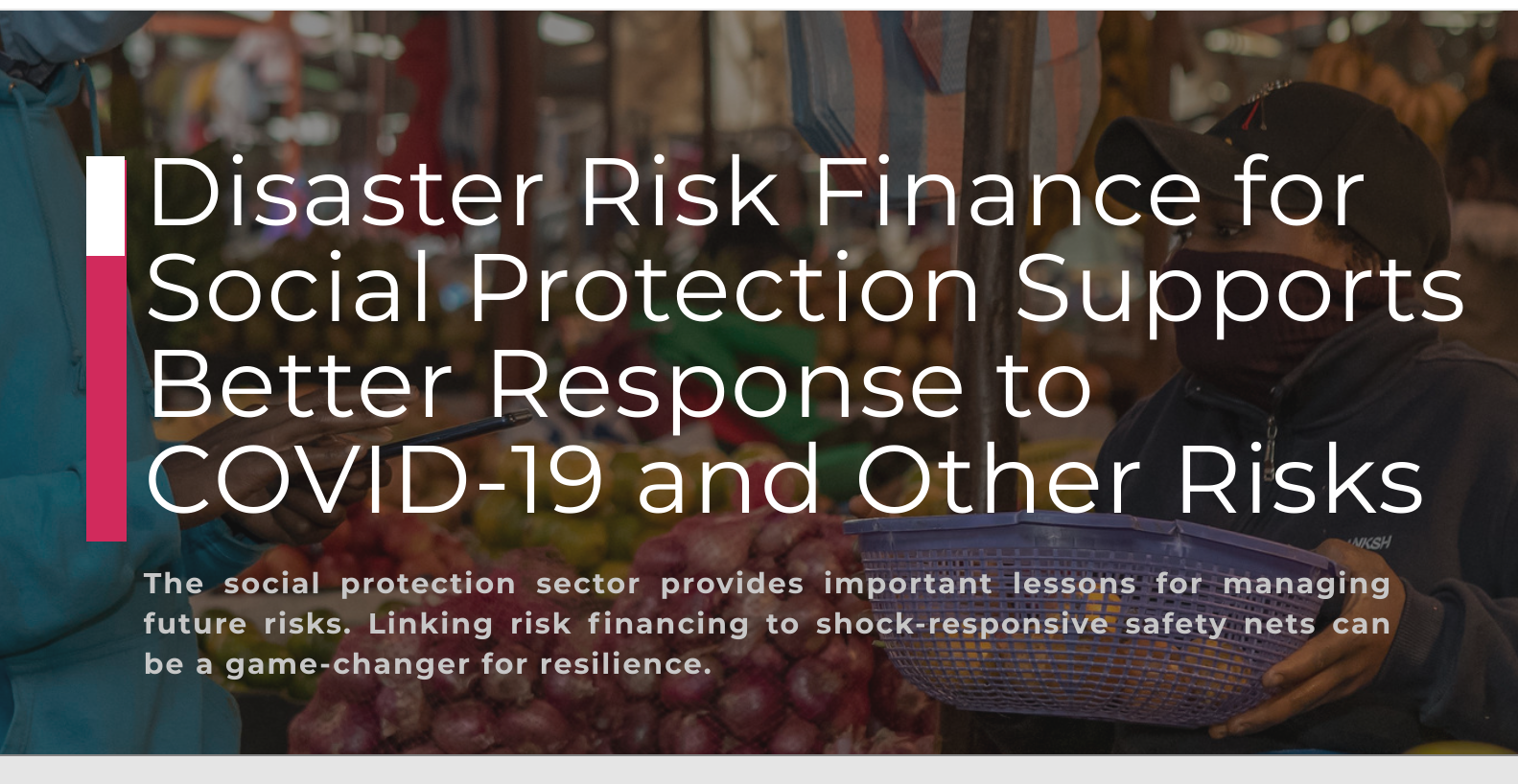Disaster Risk Finance for Social Protection Supports Better Response to COVID-19 and Other Risks

The COVID-19 pandemic is having a large negative impact on all economies given the health shock, global economic slowdown, and the impact of domestic containment measures. Linking risk financing to shock-responsive safety nets, as Kenya and Uganda have done and as Malawi, Sierra Leone, and countries across the Sahel are planning to do, can be a game-changer for resilience. The social protection sector provides important lessons for managing future risks. These same principles can be used to strengthen the shock-responsiveness of other critical sectors, such as health, nutrition, and education services, or integrate ‘financial shock absorbers’ into vulnerable economic sectors.
Time: August 11, Tuesday, 9 AM - 10:30 AM, EDT
Webinar Connection: The webinar connection link will be sent to you upon successful registration.
What You Will Learn:
- How does this crisis and disaster risk finance agenda link to the social protection agenda?
- In which ways can we support countries to plan better for and financially respond to shocks, including health shocks like COVID-19?
- What key lessons have we learnt to date from DRF for social protection and how should this inform mechanisms for Covid-19 response.
Presenters:
- Olivier Mahul (World Bank – Practice Manager of Crisis and Disaster Risk Finance)
- Evie Calcutt and Simon Hagemann (World Bank – Crisis and Disaster Risk Finance)[Moderators]
- Emma Mistiaen (World Bank – Social Protection)
- Lindsey Paul Jones (World Bank Global Crisis Risk Platform)
- Sophie Evans (Centre for Disaster Protection)
Organizers:
- World Bank Group
- Centre for Disaster Protection
- International Policy Centre for Inclusive Growth (IPC-IG)
- Global Alliances for Social Protection - GIZ
- Australia - Department of Foreign Affairs and Trade, (DFAT)
Click here to access the REGISTRATION PAGE.